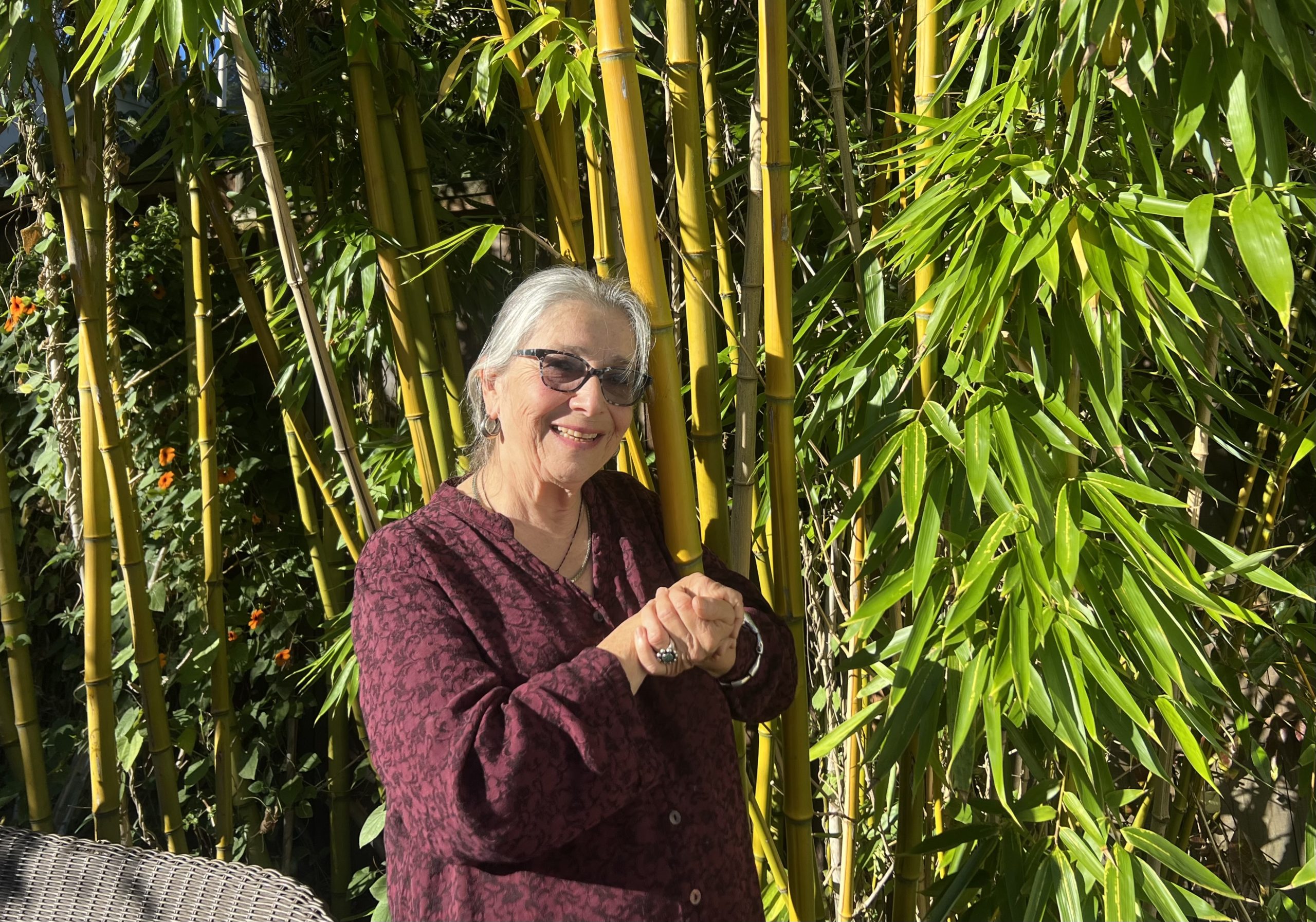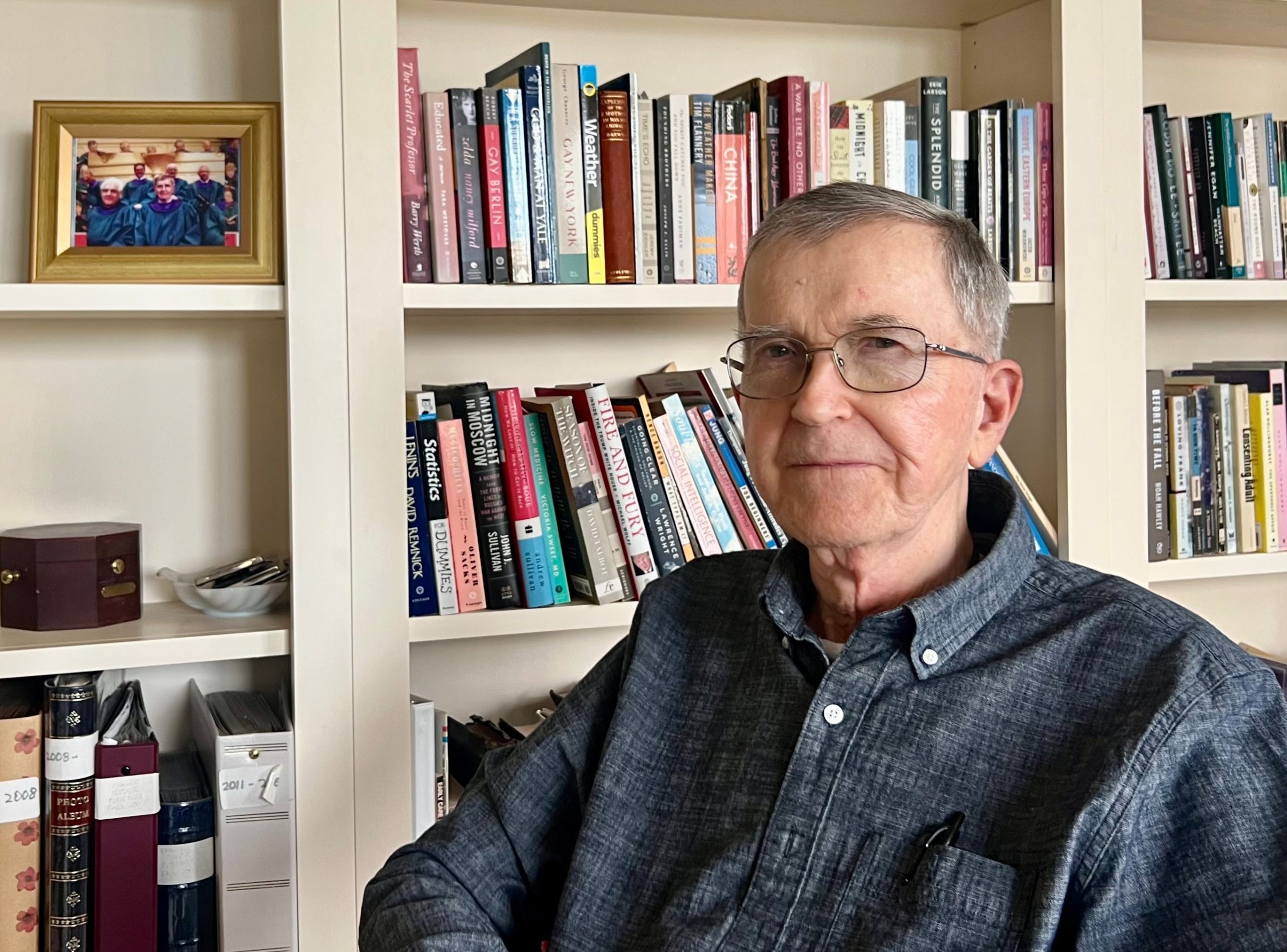Employment lawyer fighting to ‘balance the scale between the powerful and powerless’
Roderick P. Bushnell never faced age discrimination himself. But he has dedicated the latter part of his legal career to defending people who have.
Still, he has experienced what it does to older workers when they lose their job. He was a teenager when his father was fired at the age of 50. “My father struggled. Even though he had worked hard for 15 years, he could not find another job.”
Bushnell has been representing clients since 1981 in all types of employment discrimination, particularly against older workers. “When my father got fired there was no remedy for age discrimination. Now there is.”
Bushnell said he doesn’t know why his father was fired, only what happened afterward. He has empathy for what his clients go through.

“Their families fall apart,” Bushnell said. “Who is going to pay the mortgage, the car payment, the college tuition? They have to move. They have to downsize. For many workers, this is a time when they have more debt than they ever have had in their lives. It’s enormous. Many just want to keep working, and feel they’ve been treated unfairly by an employer to whom they have given their life.”
His father was a product innovator for Dow Chemical, developing materials like aluminum and magnesium for use in consumer products such as boats and other things. After being let go, he tried – unsuccessfully – to run his own business.
“My mother was a schoolteacher and became the breadwinner; she supported the family on her minimal salary. There was no extra money,” he said. “I worked during high school to save money to go to college. My father never regained the income or stature and died when I was in law school. Afterward, my mother sold the family home and moved into a small house in town.”
Age and high salary a killer combo
In many age discrimination cases, he said, there is a correlation with salary because productive, long-term employees receive step increases or promotions to better paying positions. “A company intent on cost savings, fire the higher paid employees, often older, first.”
He recalled representing a successful salesman of blueprints who was fired at the age of 69: “In the deposition the firing manager said he got a list of employees ages and salaries. He said, “I got rid of the people who made the most money so I didn’t have to fire so many people.’ He did not lie. It was clear that my client was fired because he was a certain age; no other reason.”
There is good news for Californians, however. The law now prevents employees from being fired solely on the basis of their salary, with some limitations and exceptions.
Born in Buffalo, N.Y., Bushnell landed in San Francisco in 1969 and passed the state Bar exam. He had completed his undergraduate studies in history at Rutgers University and graduated from Georgetown Law School in Washington, D.C. He knew he wanted a career in the law but had not yet found his niche.
California law gets progressive
His first job was as an attorney for the Department of Water Resources in Sacramento. “We did water, and I had never thought about water before I came to California,” he said. “I handled issues involving farmers and the conveyance of water at dams, canals, waterways. There was a lot of litigation.”
In 1971, he opened his own practice. His caseload was divided between criminal and employment law. (His most high-profile case came in the mid-’90s, when he represented a San Francisco police officer against the then-chief in a sexual harassment suit.)
Changes in California law 10 years later prompted him to focus solely on employment law. “California became the strongest state in employment discrimination law, allowing for compensatory (lost wages, emotional distress, attorney fees) and punitive damages,” he said. “This added up to bigger verdicts and settlements which makes litigation more productive.”
Even though California courts take a progressive approach to fighting age discrimination, it remains fairly pervasive, especially among tech companies, particularly start-ups, Bushnell said.
The start-up trap
“Experienced employees in their 40s and 50s are lured by the potential windfall from stock options. Tech startups say to a candidate `come work for me. This is a start-up, we have a new product. We will give you lots of stock options, and if we make it, you’ll make money on the stock options.’ “
Bushnell calls it “promissory fraud.”
Workers leap at the opportunity of stock options and perhaps getting out of their old company. Eventually, they find their experience doesn’t count for much. When they’re basically ignored then fired, they’re stunned.
Bushnell said he’s able to settle most cases, largely because he is litigating more than one cause of action simultaneously. Age discrimination claims frequently involve other factors, such as retaliation or whistleblowing. “If a case goes to trial, anything can happen,” he said, adding that younger jurors are not often receptive to ageism cases alone.
Most insidious
There are more age discrimination cases nowadays simply because people live longer; they need the money in our high-cost society so they are working longer, Bushnell said. “Then they get fired or laid off for the obvious reason of their age, when they can be replaced by a younger, not as expensive employee.”
Not many lawyers will take employment cases, he said, because they are hard, long and expensive. But watching his father’s decline instilled in him a mission.
“It’s fighting for the seemingly voiceless who have lost everything – through no fault of their own,” he said. “It’s important to me to help balance the scale between the powerful and the powerless.”
Age remains the most insidious type of discrimination, he said. “It is not based on a person’s sex, the color of their skin; it applies to everyone.”
WHAT TO DO IF YOU SUSPECT
AGE DISCRIMINATION
There are a lot of published “to-do” lists for people who suspect they are the targets of employment age discrimination. Bushnell has his own requisites:
- “Keep a diary. It’s the four W’s – Who, What, Where, When – on the incident(s) of age discrimination. No extraneous observations. Include verbatim comments and personnel actions. A record, For example, might state: On Friday, Feb. 14, 2020, I was at the water cooler and Jim Jones, PR Manager, said to Henry Morris, IT Manager, “I’m sick of all these old people around here.” Also, there is a fifth “W” – witnesses, people who saw and heard the incident.
- Talk to the supervisor of the person causing the problem – if it is not the supervisor who is causing the problem. Otherwise make a complaint to Human Resources, offer a copy of that diary and keep the original. Use the word “discrimination” because that sets in motion the anti-retaliation law.
- Remember that HR is not independent; its managers do the company’s bidding. Workers can file a claim with the California Department of Fair Employment and Housing (DFEH) or the Equal Employment Opportunity Commission (EEOC). But there are time limits.
- If all else fails, contact a plaintiff lawyer in your immediate area. Check out: California Employment Lawyers Association (CELA) or the National Employment Lawyers Association (NELA).





